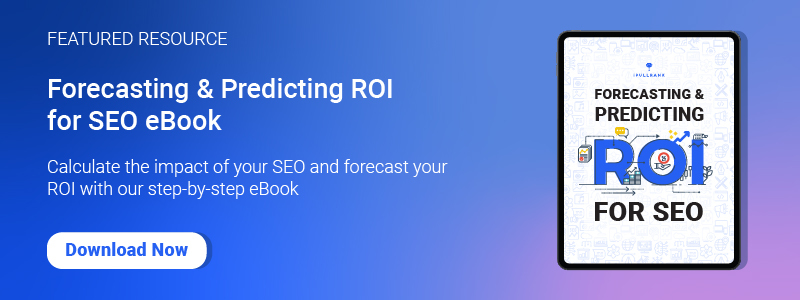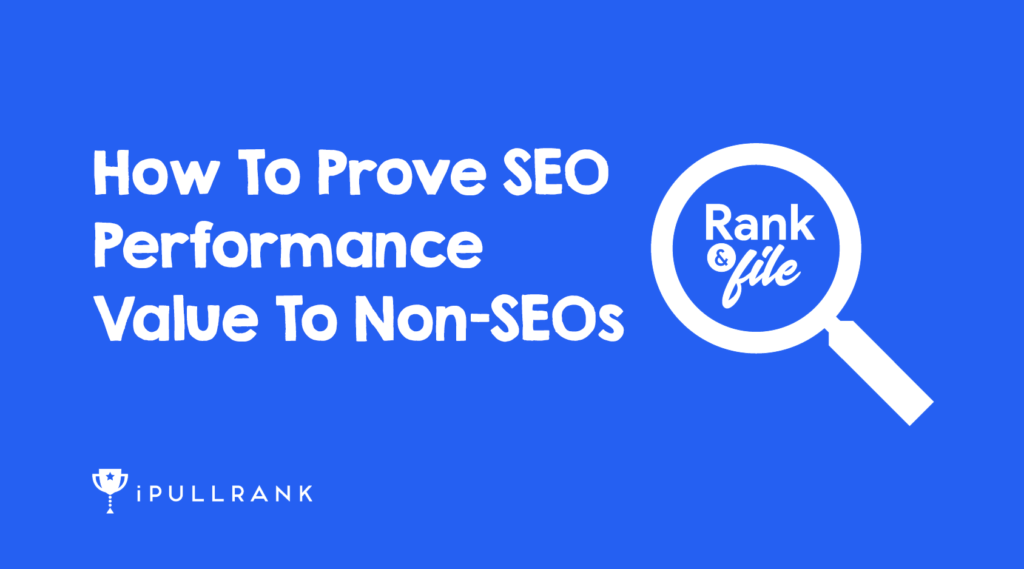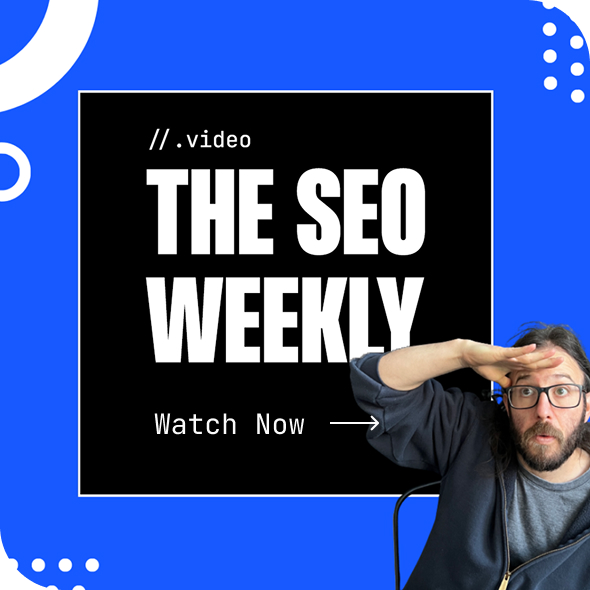If you’re here, you’re probably an SEO struggling to show your value to clients or your own organization. I’m happy to help!
In this episode of Rank and File, I walk through a process to understanding the KPIs of others and aligning your work with them so they can understand your value.
Video Transcription:
Intro
Greetings and salutations folks. Welcome back to another edition of Rank and File. I’m your host, Mike King, managing director and founder here at iPullRank. Today what I want to talk to you about is proving SEO performance value to non SEOs. Now I know you’ve been in this situation, otherwise you wouldn’t have clicked on this video. You’re sitting across the table from somebody from another team or CMO, VP of marketing, someone like that who doesn’t understand the value of SEO or what you’ve done and how that’s brought value to the business. What are we going to talk about today is how you reframe that discussion using the right KPIs so that they can see your value.
What are things to know?
But a couple of things to know first. So one, metrics only matter when contextualize, even if we’re talking about a conversion goal of some sort, that doesn’t matter to anyone until you understand what that represents. So if you look at something like, you know, you get somebody analytics, you see all these conversion goals, you don’t know what they mean. They’re just numbers to you.
By that same token until someone explains it to you, you know, you don’t understand what SEO metrics mean. You don’t know when a domain authority can mean for a page or a website, as far as its performance. So that’s the first part of it that you need to, you know, wrap your head around
Two, you need to expect to have multilevel reporting for any engagement that you’re working on, whether that’s internal or external, cause you’re always dealing with a series of stakeholders, not just your one stakeholder, even if it’s your main point of contact, they’re rolling that report up to someone else. And so you’ve got to make sure that you’re speaking to all the key people that your work is impacting and the way that it resonates with them.
And so AB testing is the only true way to attribute something that you’ve done in organic search. And this is a core reality because of the fact that, you know, you never know what happened on the landscape, whether that was an algorithmic change, whether it was an algorithmic rollback, whether it was competitors getting penalize or any number of things could have impacted why you perform better or worse. And so AB testing is the only true way to have something as close to being in a vacuum as possible to determine whether or not your implementations had a specific impact.
What can you do?
So knowing all that, let’s talk about what you can actually do. One, you want to identify the KPIs that your stakeholders actually care about. So whether that’s the, you know, different channels have different KPIs, how do you show that your KPIs impacted theirs or your channel impacted theirs? Or how do you align with KPIs that they already understand?
So, you know, people understand the concept of share of voice that may be something that you want to put in front of them rather than talking links and so on. But whatever it is, you have to identify that based on who you’re talking about, who you’re talking to, and what they care about. And then you want to align your recommendations to those KPIs. So once you figure out like, Oh, they care a lot about page speed, well any new recommendation that you do, make sure you highlight the ones that go with page speed. And if there are previous recommendations that were rolled out, make sure you highlight the ones that go with page speed.
And so then you want to show those implementations on a timeline against their KPIs. So again, if you’ve got previous recommendations that have been rolled out already, go back and pull that KPI against the timeline of that recommendation and then you can show where you had impact. At this point, you should have buy in by going back in the way they’re thinking rather than just showing SEO, SEO, SEO. So at this point you can then educate them on the KPIs that should matter to them about SEO.
What are some examples?
Developers
Now let’s get into a couple of examples just to make this a little bit more concrete. So if you’re talking to developers, again, pace speed is a KPI they care about. It’s also one that you would likely share because as an SEO you know that Google cares about speed. So you can you know, highlight specifically that recommendation or those series of recommendations that impacted their direct KPI. Whether it’s like time to first bite or you know, a time to a first interactive or whichever those metrics you are actually working on. And then show how that impacted crawl activity, which then can also impact the number of pages index and that shows you like, hey, the things that we did actually yielded more activity from Google and then ultimately could impact visibility as well.
Paid Media
If you’re talking to someone that does paid media, there are a series of metrics that you share, so they use them or they calculate them differently because of a different channel, but it is a series of metrics that you both can use. So going to Google search console, you can get click through rate, you can get impressions, you can get clicks and you know any paid media channel is going to report those numbers. And so if we’re talking about paid search specifically while then you’ve got the metric return on ad spend, which organic search can directly impact. And so you’d have to do some digging to really understand if you did or not.
But you can see situations where if they didn’t already rank organically and then you did something to make them rank organically for a given keyword, that return on ad spend can actually go up because more people are clicking on the organic search result that aren’t actually looking to convert yet. And then the people that are looking to actually convert may click on that paid result. And so you’re basically distributing, uh, the traffic based on where users are in their user journey differently and then they can get more a return in that channel from what you did in organic search.
C Level
Now if you’re dealing with C level people or VPs of marketing, they’re going to care a lot more about the top level result. What was the conversion lift that they saw from organic search? You know, they may be doing incremental testing and a variety of other things to see like, okay, did we see an impact between these channels and so on. And so if you’ve just got direct impact on conversions, we’re probably not talking right now. You just show like, hey, conversions went up from what we did. But you likely don’t have that.
And so what I would recommend you check out is the assistant convergence. And this is something that we tell people that are doing content marketing as well because oftentimes you roll out a bunch of content and you can’t show a direct impact. But if you look at the assisted conversions, users may have come from social or come from email or come from referral channels on that content and then ultimately they converted later in a different channel.
Same is true of organic search. So user may come to you first time in organic search, not convert directly, but then later on in that 90 day window they may come back through another channel and then convert. And so you have a lot at your disposal to really get in there. And say, hey, um, we’re actually showing a lot of value across everything that’s going on in this marketing mix, and here’s how we show it in the ways that you actually care about it.
Conclusion
So I hope that helps. I hope you don’t run into too many situations where you know people are doubting your value, but if you are, you’re now armed to show them that you’re actually killing it. See you tomorrow.

What are some other things that you do prove to non-SEOs that your work is valuable?





